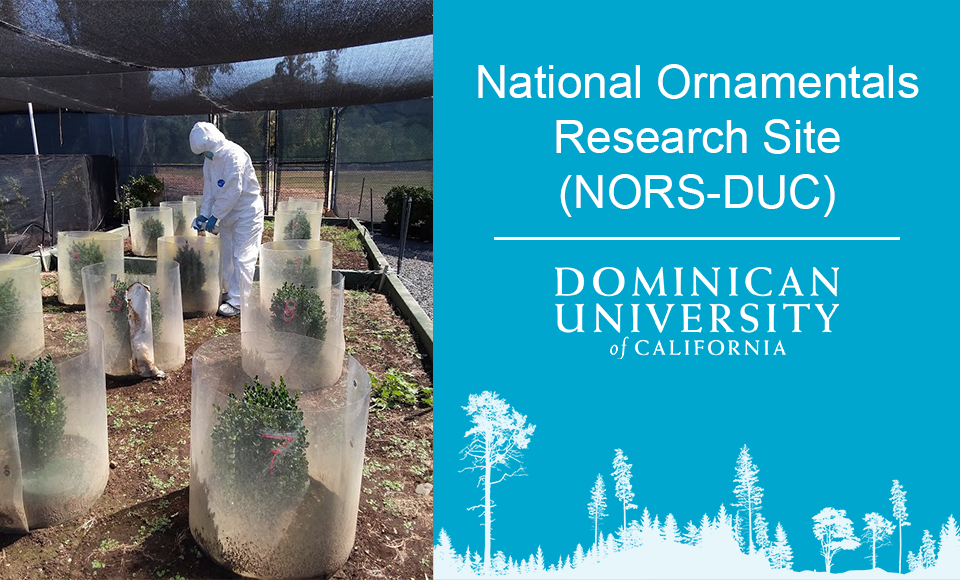Breadcrumbs
- News
- News Archive
- USDA Awards New Grants To Dominican’s National Plant Research Facility

The U.S. Department of Agriculture (USDA) has awarded a new $315,000, one-year grant to NORS-DUC, the National Ornamentals Research Site at Dominican University of California, to study invasive plant pathogens, develop control strategies, conduct outreach and maintain the unique research nursery.
A second joint grant goes to NORS-DUC and collaborator Dr. Douglas Luster from USDA, Fort Detrick. The project, “Adaption of an isothermal recombinase polymerase amplification assay for detection of Phytophthora ramorum in irrigation,” will help to develop and test a new molecular method for faster detection of the pathogen from water samples. For this project NORS-DUC will receive $85,000.
A collaboration between Dominican, the USDA, and the California Department of Food and Agriculture (CDFA), the NORS-DUC research site studies emerging and invasive quarantine pathogens of ornamental and native plants in an open, nursery-like environment.
Scientists from other universities, along with public and private research centers, are able to conduct studies on quarantine soil-borne organisms at the research facility.
“We focus on diseases of ornamental and forest plants, especially those caused by members of the genus Phytophthora, such as P. ramorum, the causal agent of Sudden Oak Death, which killed millions of native trees in coastal California, changed whole ecosystems and increases fire hazard. A newer project focuses on Calonectria pseudonaviculata, which causes a serious disease of boxwood plants in many parts of Europe and the Eastern US, but is not yet present in California,” says Dr. Wolfgang Schweigkofler, research associate professor and lead scientist at NORS-DUC.
“Our main focus is applied research, such as validation and development of best management practices (BMPs); development of remediation options for soil, water and infested plants; and development of monitoring and control strategies. We share our research results with the public through a strong outreach program, as well as through scientific and technical publications.”
Recent work at NORS-DUC includes:
Read publications and presentations about research conducted at the NORS-DUC facility.
Read more information about ongoing research.
Photo above of Dr. Nilwala Abeysekara, NORS-DUC laboratory manager, inoculating boxwood plants with a pathogenic fungus.